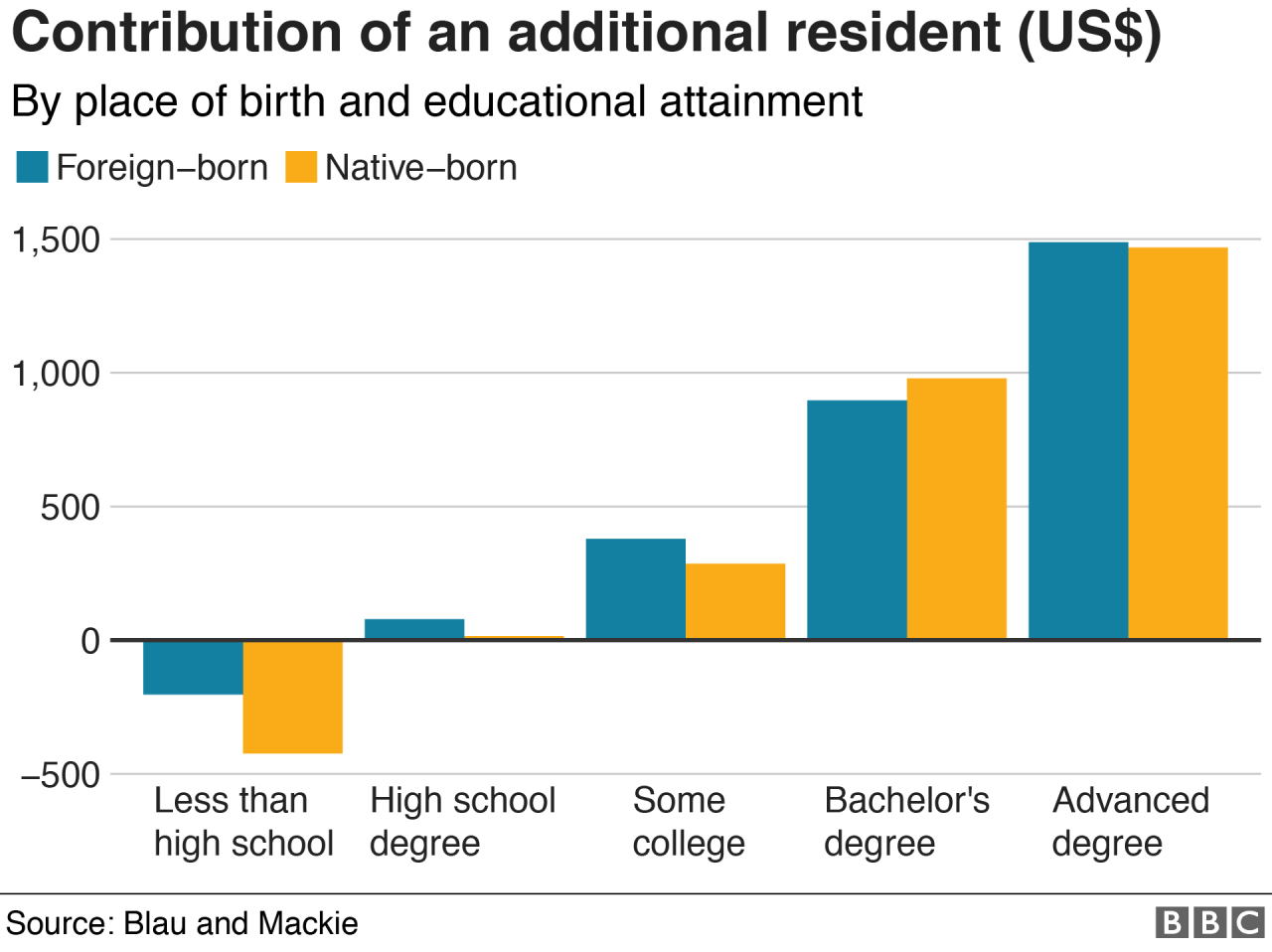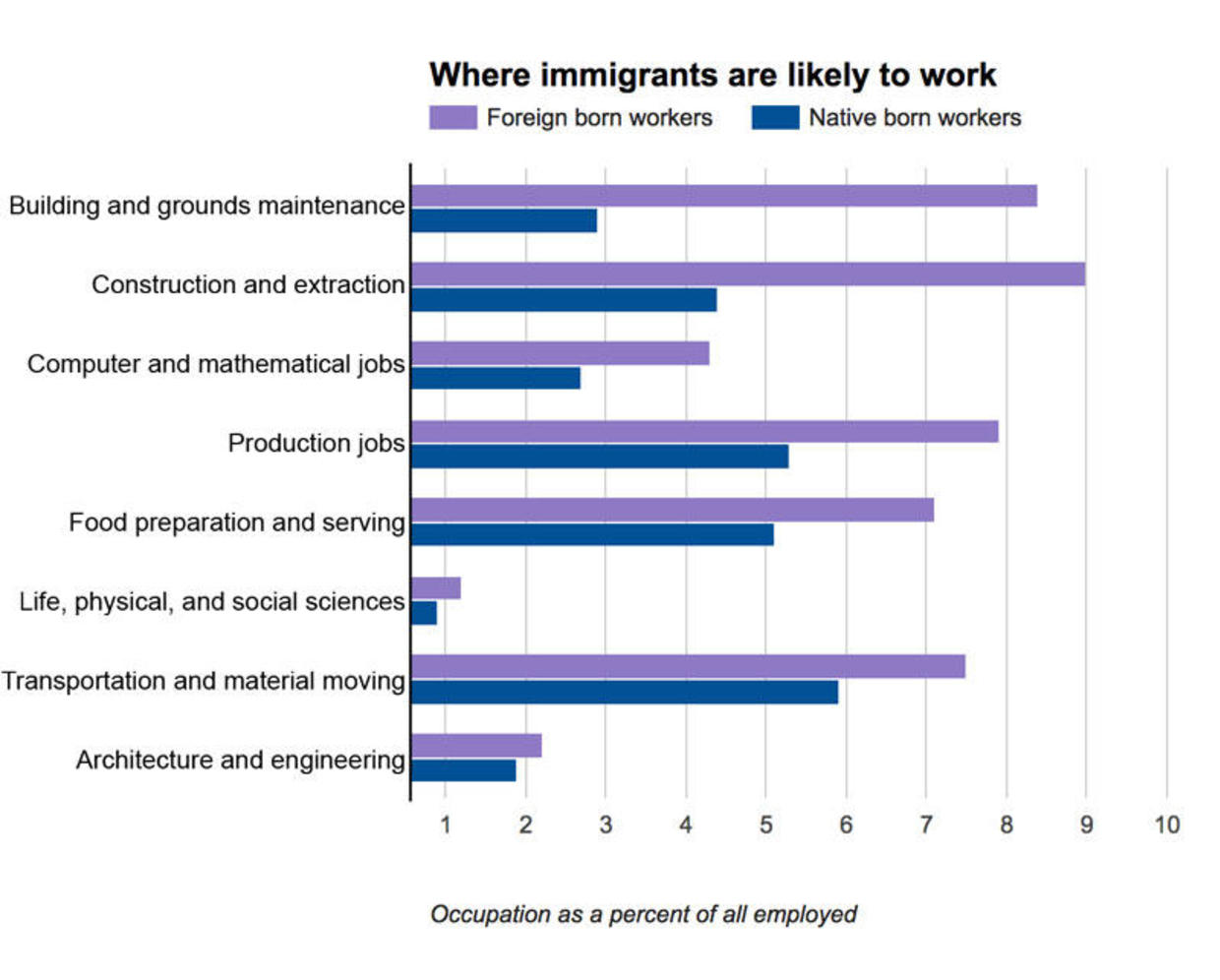The role of immigrants in shaping societies has been a topic of ongoing debate and discussion. Their contributions extend beyond cultural and social spheres, reaching deep into the economic fabric of their adopted nations. This comprehensive analysis delves into the multifaceted ways in which immigrants drive economic growth, create jobs, and enrich communities, shedding light on their undeniable value to society.
Through their hard work, innovation, and entrepreneurial spirit, immigrants have played a pivotal role in building prosperous economies. From filling labor shortages to establishing thriving businesses, they have made significant contributions to GDP growth, tax revenues, and job creation. Their impact extends far beyond their own communities, as they contribute to the overall economic well-being of their host countries.
Overview of Immigrant Economic Contributions
Immigrants make significant contributions to the economy of their host countries. They bring skills, knowledge, and entrepreneurial spirit, which can boost economic growth and create jobs. Immigrants also contribute to the tax base and support social programs.According to a study by the National Academy of Sciences, immigrants have a positive impact on the U.S.
economy. The study found that immigrants increase GDP, create jobs, and boost innovation. Immigrants also contribute to the tax base and support social programs.
Employment and Job Creation
Immigrants play a crucial role in filling labor shortages and creating new jobs within the economy. They often fill positions that are difficult to fill by native-born workers, such as low-wage jobs in agriculture, construction, and service industries. By doing so, they help to keep businesses running and contribute to economic growth.Immigrants
also create new jobs by starting their own businesses. In the United States, for example, immigrant-owned businesses employ millions of workers and generate billions of dollars in revenue. These businesses often provide goods and services that are not available from other sources, and they help to create new markets and economic opportunities.
Immigrant-Owned Businesses
Immigrant-owned businesses are a major source of job creation and economic growth in the United States. According to a study by the National Bureau of Economic Research, immigrant-owned businesses employ over 4.7 million workers and generate over $1.3 trillion in revenue annually.
These businesses are often located in low-income and minority communities, and they provide much-needed jobs and services to these areas.One example of a successful immigrant-owned business is the restaurant chain Chipotle Mexican Grill. Chipotle was founded in 1993 by Steve Ells, an American entrepreneur.
However, the company’s success is largely due to the hard work and dedication of its immigrant employees. Chipotle has over 2,000 restaurants in the United States and employs over 50,000 people. The company is known for its fresh, made-to-order burritos and tacos, and it has become a popular destination for diners of all backgrounds.
Innovation and Entrepreneurship

Immigrants have played a significant role in driving innovation and entrepreneurship, contributing to economic growth and prosperity. They bring diverse skills, perspectives, and cultural experiences, enriching the entrepreneurial ecosystem and fostering creativity.Immigrant entrepreneurs often establish businesses in sectors where they possess specialized knowledge or expertise, such as technology, healthcare, and manufacturing.
They are more likely to start businesses in high-growth industries, contributing to job creation and economic expansion.
Case Studies of Successful Immigrant Entrepreneurs
Numerous successful immigrant entrepreneurs have made notable contributions to the economy. Some notable examples include:* Elon Musk (South Africa): Founder of Tesla and SpaceX, revolutionizing the automotive and space exploration industries.
Sergey Brin (Russia)
Co-founder of Google, transforming the internet and search engine technology.
Oprah Winfrey (United States)
Talk show host, producer, and philanthropist, creating a global media empire and empowering women.
Tax Contributions and Public Services
Immigrants are significant contributors to tax revenues, which fund essential public services such as education, healthcare, and infrastructure. They often pay taxes at similar or higher rates than native-born citizens, contributing to the overall fiscal health of the country.
Comparative Tax Contributions
Studies have consistently shown that immigrants pay substantial amounts in taxes. For example, a 2017 study by the Institute on Taxation and Economic Policy found that undocumented immigrants in the United States paid an estimated $11.74 billion in state and local taxes in 2014. This included $2.3 billion in property taxes, $4.6 billion in sales taxes, and $4.8 billion in other taxes.The
table below compares the tax contributions of immigrants to those of non-immigrants:| Tax Type | Immigrant Contribution | Non-Immigrant Contribution ||—|—|—|| Income Tax | Similar or higher | Similar or higher || Property Tax | Often higher | Similar or lower || Sales Tax | Similar or higher | Similar or higher || Other Taxes | Often higher | Similar or lower |
Cultural and Social Impact

Immigration enriches societies by fostering cultural diversity and promoting social cohesion. Immigrant communities often introduce new traditions, customs, and cuisines, which can enhance the vibrancy and richness of the local culture.
Enrichment of Local Culture
Immigrants bring with them diverse artistic expressions, culinary practices, and religious beliefs that contribute to the cultural tapestry of their new communities. This exchange fosters cross-cultural understanding, promotes tolerance, and creates a more dynamic and inclusive society. For example, the vibrant Chinatowns and Little Italys found in many cities around the world are testaments to the enduring cultural impact of immigrant communities.
Challenges and Policy Implications
Immigration can present certain challenges that warrant consideration. Potential concerns include competition for jobs, increased strain on public resources, and potential cultural tensions. These challenges necessitate thoughtful policy responses to maximize the economic benefits of immigration while addressing these concerns.
Policy Recommendations
To harness the economic advantages of immigration while mitigating potential challenges, various policy recommendations have been proposed:
- Skill-based immigration systems: Prioritizing the admission of immigrants with skills and qualifications in high demand can enhance the economic contributions of immigrants.
- Language proficiency requirements: Promoting language proficiency among immigrants facilitates their integration into the workforce and society.
- Integration programs: Implementing programs that support the integration of immigrants into their new communities, such as language classes, job training, and cultural orientation, can foster social cohesion and economic success.
- Pathways to citizenship: Providing clear and accessible pathways to citizenship for immigrants encourages long-term economic investment and stability.
- Addressing discrimination: Enacting anti-discrimination laws and promoting diversity and inclusion in the workplace and society ensures equal opportunities for immigrants.
By implementing these policies, countries can leverage the economic benefits of immigration while addressing potential challenges and fostering a more inclusive and prosperous society.
Final Conclusion
In conclusion, the economic contributions of immigrants to society are undeniable. Their labor, entrepreneurial spirit, and cultural diversity have played a crucial role in shaping thriving economies and vibrant communities. By embracing policies that foster integration and harness the potential of immigrants, nations can unlock the full benefits of this valuable segment of their population.
It is imperative that we recognize and support the positive impact of immigrants on our societies, ensuring that they continue to be a driving force for economic prosperity and social progress.
Answers to Common Questions
How do immigrants contribute to tax revenues?
Immigrants pay various taxes, including income tax, property tax, and sales tax. These contributions help fund essential public services such as education, healthcare, and infrastructure.
Do immigrants take jobs away from native-born workers?
Research suggests that immigrants generally create more jobs than they take. They often fill labor shortages in industries such as healthcare, construction, and agriculture, which can lead to economic growth and increased job opportunities for all.
How do immigrant-owned businesses benefit local economies?
Immigrant-owned businesses create jobs, boost local economies, and contribute to tax revenues. They often cater to niche markets and provide goods and services that may not otherwise be available in the community.



